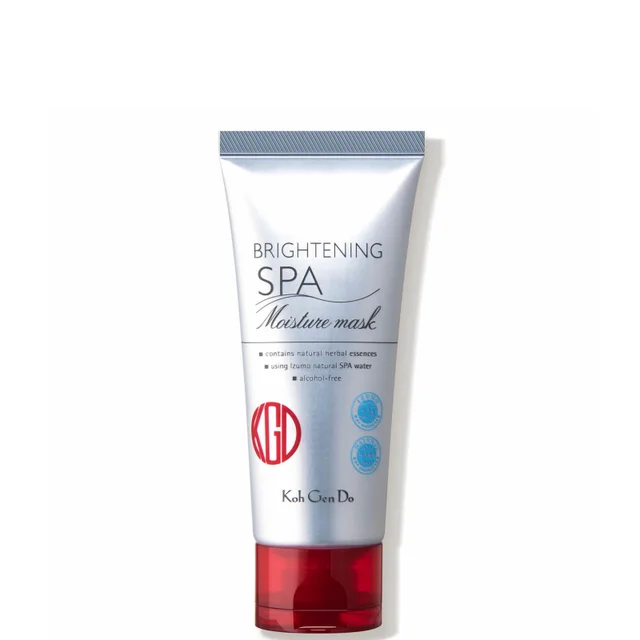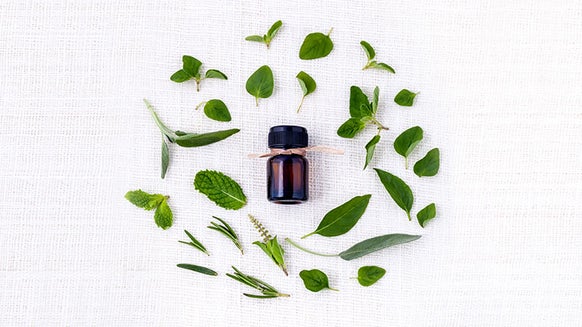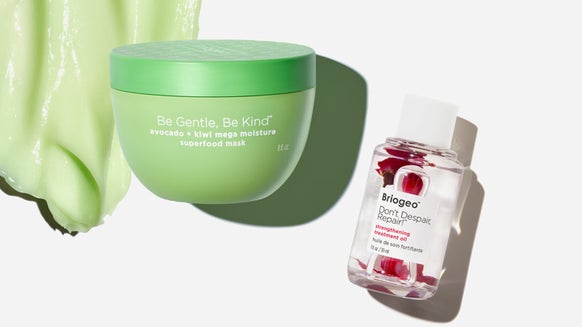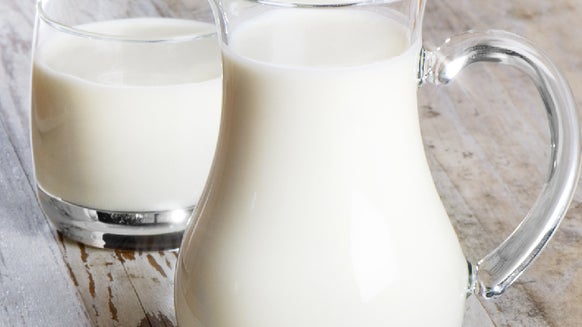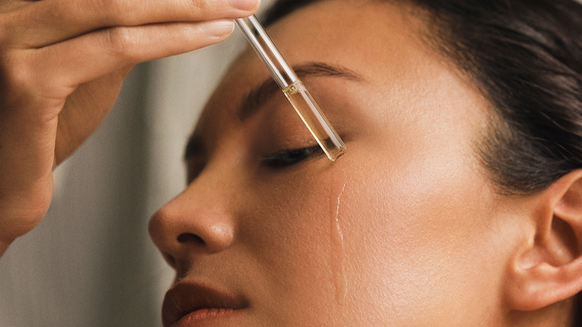Why Your Skin Needs Magnesium—and the Easiest Way to Get a Lot of It
By now, you likely already know how important it is to not only take care of the outside of your body, but the inside, too. That’s why so many beauty and skin care products are jam-packed with minerals, vitamins, and ingredients that not only address your specific skin concerns, but also provide another source of nutrients for your body, too. You’ve likely heard of vitamin C in your night cream or vitamin D in your daily moisturizer, but what about magnesium?
It might not be as household-known as other minerals, but magnesium actually has a major impact on our health, especially for women.“Magnesium is an essential mineral, which means that we need it to function but we cannot synthesize it on our own. In other words, we must get this mineral from the food we eat,” explains clinical nutritionist, Tara Coleman. “Magnesium plays a role in hundreds of functions in the human body.”
Before you skip over this must-have mineral, learn more about how it can make a big impact on your daily life, skin care, health and wellbeing:
What does magnesium do?
As Coleman says above, magnesium is a major mineral in our bodies and is mainly found in our bones. “We only have about 1 ounce of magnesium in the body of a 130-pound person. Over half of the body’s magnesium is in the bones, which essentially serve as the reservoir/bank for magnesium withdraws, to ensure that some magnesium will be on hand for vital reactions despite dietary intake,” says registered dietitian, nutritionist and certified holistic chef, Elizabeth Brown, MS, RDN. She adds that magnesium is also used in more than 300 enzymatic reactions throughout our body, which in other words means that magnesium makes chemical reactions easier.
Why is magnesium important?
“Magnesium is especially important for making protein, creating and maintaining bone integrity, and for energy metabolism. Magnesium is part of the cell’s membrane transport system which helps exchange sodium and potassium across cell membranes in order to facilitate essential bodily functions such as regulating blood pressure through the kidneys, heart rhythms, muscle contractions, and conduction of nerve impulses,” Brown says. Talk about an important element, right?
And for hardworking women who balance a social life, a career and a busy workout schedule, magnesium can be the key ingredient that helps you calm down after a busy day, Coleman says. She notes that in addition to removing twitches or improving your sleep, this mineral can also relieve PMS symptoms, too.
What happens if you don’t get enough magnesium?
With any other vitamin or mineral deficiency, if you’re not getting enough magnesium, your body will let you know, stat. While it’s important to make sure your body is getting everything it needs to function properly and effectively, Clinical Professor of Medicine Emeritus, Indiana University School of Medicine, Morton E. Tavel MD estimates 10 percent of the population doesn’t get enough magnesium. “The primary cause of deficiency is decreased dietary intake: only 32 percent of people in the United States meet the recommended daily allowance,” he says. “Although most of those low in magnesium are unaware of any problems, symptoms referable to neuromuscular, cardiovascular, and metabolic systems may occur. Since every cell in the body requires this element, an extensive list of symptoms could result from a deficiency.”
From feeling nervous to not getting enough shut-eye, you might notice some of these symptoms:
“Because Magnesium is essential for energy metabolism, low-magnesium levels may contribute to fatigue,” Brown says. “The conversion of blood sugar to energy involves adequate magnesium, therefore, magnesium may aid blood sugar control. As such, this could help with weight maintenance since keeping your blood sugar on an even keel may help ward off unfavorable cravings.”
“Magnesium is a relaxer, so a deficiency of magnesium can be associated with a lot of things that you would associate with tension (including stress-induced breakouts). It also plays a part in activating your muscles and nerves, so that annoying eye or leg twitch can be fixed with more magnesium,” Coleman says.
How effective are beauty products with magnesium?
There are many beauty products that give a lot of face time to magnesium as their star ingredient. But be wary of how impressive – or dramatic – the results might or might not be. As Coleman explains, “Although there have been some studies that have shown that magnesium helps with fine lines and wrinkles, there really isn’t a ton of concrete evidence. The skin, however, is an excellent way to absorb magnesium. You can soak in Epsom salts, which is magnesium that gets absorbed through your skin.”
Even if you can’t be promised you’ll anti-age with magnesium on your side, Coleman does suggest investing in beauty products with this mineral. Why? “It is difficult to get enough magnesium through diet alone. The most bioavailable form of magnesium is magnesium citrate. This means that it is in a form that your body can use and you will get the most benefit from it,” Coleman says.
What are the best food sources of magnesium?
If you want to naturally add more magnesium to your body, nutritionists agree that your diet is the best place to start. “Magnesium is found in nuts and seeds, legumes, leafy greens, dark chocolate (that’s why it makes you feel so good!), or mineral/electrolyte water,” Coleman says. Brown also gets a little more specific and says that some foods rich in magnesium include: pumpkin seeds, spinach, Swiss chard, sesame seeds, Black Strap Molasses, soy beans, brazil nuts, almonds, amaranth, buckwheat, cocoa and cashews.
However, if you’re really feeling like you need a major uptick in your intake, Coleman warns that most of the time, food isn’t enough to see a huge difference in your body. “In my opinion it is difficult for women to get their optimal daily needs from food alone. Magnesium is originally found in the soil and is then absorbed into our food as it grows. Unfortunately, a lot of our soil has been depleted of magnesium so the food also has lower amounts,” she explains. “That is why I suggest that women also add in a calcium/magnesium citrate into their supplement program.

From the latest hair and makeup trends to the best solutions for your skin issues, we've got all your beauty concerns covered!

